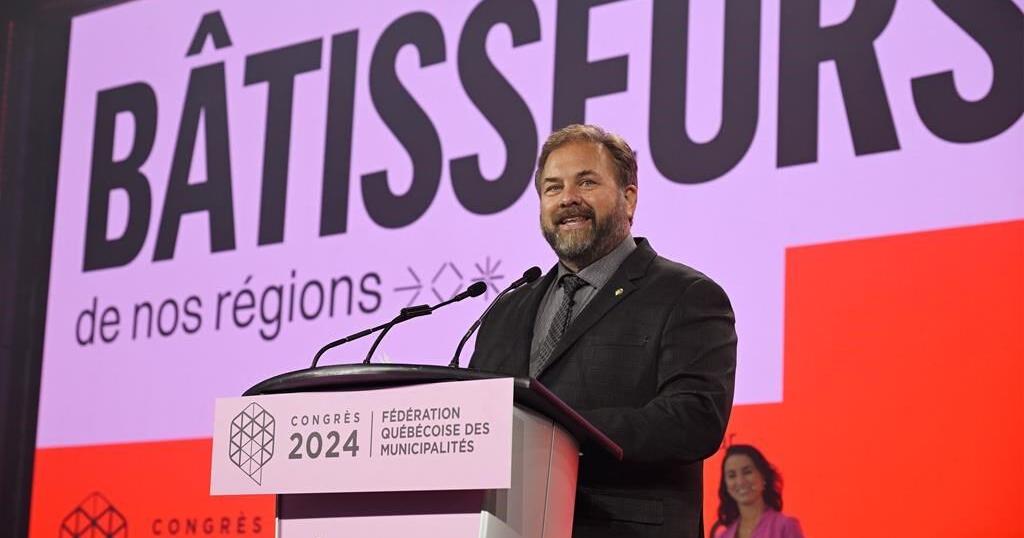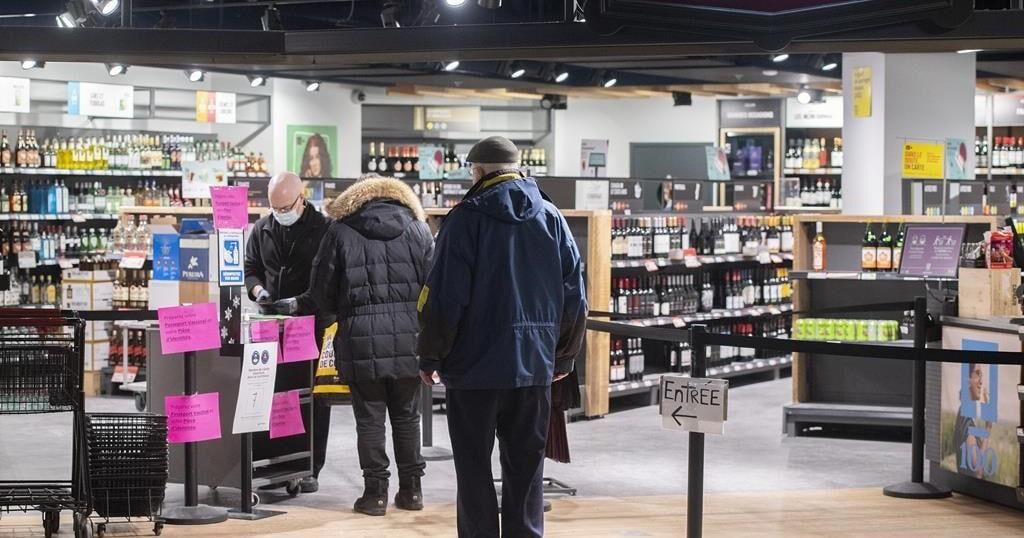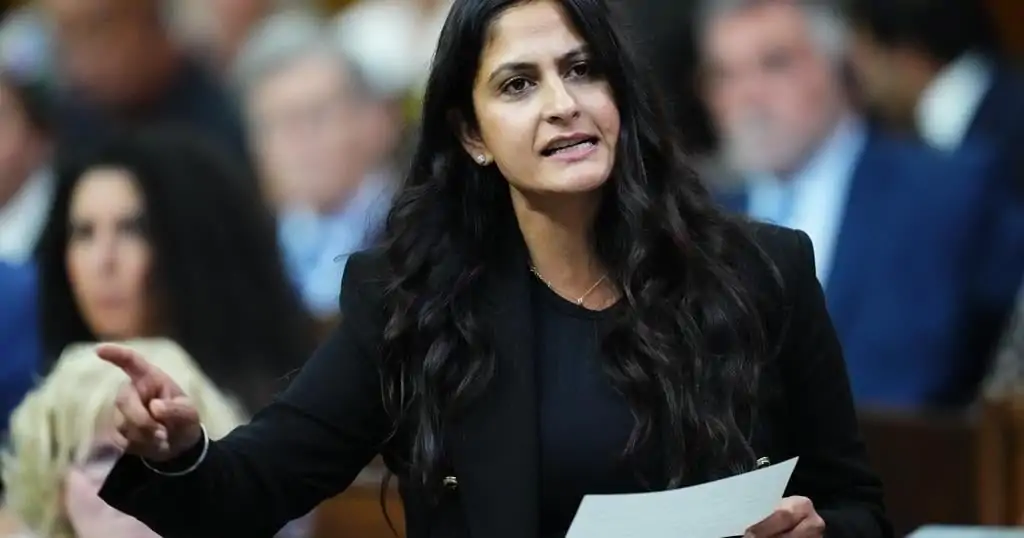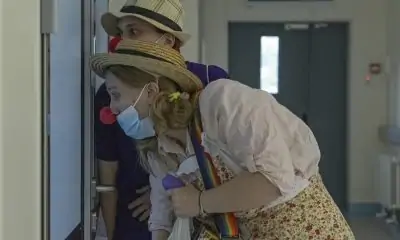PARIS (AP) — A coalition of the French left that quickly banded together to beat a surging far right in legislative elections won the most seats in parliament but not a majority, according to polling projections Sunday, a stunning outcome that threatens to plunge the country into political and economic turmoil.
The projections put President Emmanuel Macron’s centrist alliance in second, no longer in control of parliament, and the bruised far right in third.
With no bloc securing a clear majority, France faces uncertainty that could rattle markets and its economy, the European Union’s second-largest, and cast a shadow of political instability over the Paris Olympics opening in less than three weeks.
Final results are not expected until late Sunday or early Monday in the highly volatile snap election that redrew the political map of France even before votes were cast, galvanizing parties on the left to put differences aside and join together when Macron announced just four weeks ago that he was dissolving parliament and calling the election, in a huge gamble that the president hoped would shore up his centrist alliance.
It does not appear to have paid off for the deeply unpopular president. Projections forecast that his alliance would no longer be the largest single group in parliament, possibly by a long way. The National Rally party of Marine Le Pen greatly increased the number of seats it holds, but fell far short of its hopes of securing an absolute majority that would have given France its first far-right government since World War II.
In Paris’ Stalingrad square, supporters on the left cheered and applauded as projections showing the alliance ahead flashed up on a giant screen. Cries of joy also rang out in Republique plaza in eastern Paris, with people spontaneously hugging strangers and several minutes of nonstop applause after the projections landed.
Jordan Bardella, Le Pen’s 28-year-old protégé who’d been hoping to become prime minister, rued that the outcome of the vote “throws France into the arms of the extreme left.”
The most prominent of the leftist coalition’s leaders, Jean-Luc Mélenchon, urged Macron to invite the New Popular Front coalition to form a government. The alliance, he said, “is ready to govern.”
The projections, if confirmed by official counts, will spell intense uncertainty for a pillar of the European Union, with no clarity about who might become prime minister — and the prospect that Macron will be forced to govern alongside someone opposed to most of his domestic policies. The results will influence the war in Ukraine, global diplomacy and Europe’s economic stability.
The polling projections are based on the actual vote count in select constituencies.
French Prime Minister Gabriel Attal said he would resign but also that he would remain on an interim basis during the Olympics or for as long as needed, given that there could be weeks of negotiations to choose a new premier.
In a statement from his office, Macron indicated that he wouldn’t be rushed into inviting a potential prime minister to form a government. It said he was watching as results come in and would wait for the new National Assembly to take shape before taking “the necessary decisions,” all while respecting “the sovereign choice of the French.”
A hung parliament with no single bloc coming close to getting the 289 seats needed for an absolute majority in the National Assembly, the more powerful of France’s two legislative chambers, would be unknown territory for modern France.
Unlike other countries in Europe that are more accustomed to coalition governments, France doesn’t have a tradition of lawmakers from rival political camps coming together to form a majority.
Macron stunned France, and many in his own government, by dissolving parliament after the far right surged in French voting for the European elections in June.
Macron argued that sending voters back to the ballot boxes would provide France with “clarification.” The president was hoping that with France’s fate in their hands, voters might shift from the far right and left and return to mainstream parties closer to the center — where Macron found much of the support that won him the presidency in 2017 and again in 2022. That, he hoped, would fortify his presidency for his remaining three years in office.
But rather than rally behind him, millions of voters seized on his surprise decision as an opportunity to vent their anger.
In last weekend’s first round of balloting, voters backed candidates from the National Rally, in even greater numbers than in voting for the European Parliament. The coalition of parties on the left took second and his centrist alliance was a distant third.
The sharp polarization of French politics – especially in this torrid and quick campaign – is sure to complicate any coalition-building effort. Racism and antisemitism marred the electoral campaign, along with Russian disinformation campaigns, and more than 50 candidates reported being physically attacked — highly unusual for France. The government said it deployed 30,000 police for Sunday’s runoff vote – an indication of both the high stakes and concerns that a far-right victory, or even no clear win for any bloc, could trigger protests.
Any cobbled-together majority risks being fragile, vulnerable to no-confidence votes that could cause it to fall.
Prolonged instability could increase suggestions from his opponents that Macron should cut short his second and last term. The French Constitution prevents him from dissolving parliament again in the next 12 months, barring that as a route to possibly give France greater clarity.
___
Associated Press journalists Barbara Surk in Nice, France, and Helena Alves and Alex Turnbull in Paris contributed to this report.
___
Follow AP’s global election coverage at

























